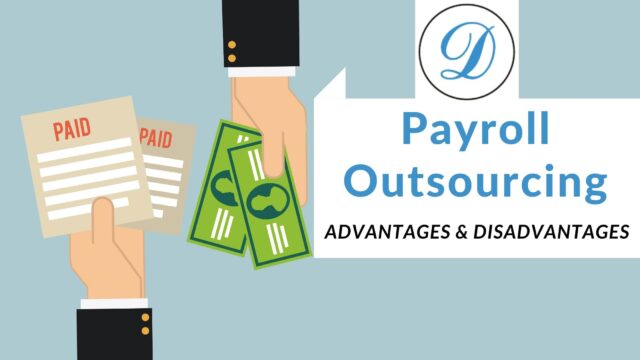Outsourcing payroll has become a common practice for businesses seeking to streamline their operations and focus on core functions. Before embarking on this journey, several critical factors should be considered to ensure a smooth transition and successful partnership with a payroll service provider. This log outlines essential aspects that need to be known before outsourcing payroll.
Understanding the Benefits and Risks
The benefits of outsourcing payroll are well-documented. Efficiency, compliance, and cost savings are frequently cited advantages. By delegating payroll tasks to experts, the internal team can concentrate on strategic initiatives rather than administrative functions. Additionally, expertise in payroll laws and regulations is provided, reducing the risk of costly errors and non-compliance.
However, risks also need to be assessed. The potential loss of control over payroll processes and sensitive employee information must be acknowledged. Ensuring that these risks are managed effectively is crucial.
Selecting the Right Payroll Service Provider
Choosing the right payroll service provider is paramount. The following criteria should be evaluated:
- Reputation and Experience: The provider’s reputation and years of experience in the industry should be investigated. Positive reviews and a history of successful partnerships indicate reliability.
- Service Offerings: A clear understanding of the services offered by the provider is necessary. Services might include payroll processing, tax compliance, benefits administration, and employee self-service options.
- Technology and Integration: The technology used by the provider should be assessed. Integration with existing HR and accounting systems can streamline processes and reduce manual data entry.
- Compliance and Security: The provider’s ability to ensure compliance with federal, state, and local regulations should be confirmed. Additionally, robust data security measures should be in place to protect sensitive information.
Cost Considerations
The cost of outsourcing payroll varies depending on the provider and the scope of services required. A thorough comparison of pricing models and fee structures should be conducted. Providers may offer a range of pricing options, including per-employee or per-payroll-period rates. Hidden costs or additional fees for specific services should also be clarified.
Contractual Agreements and Service Level Agreements (SLAs)
A well-defined contract and Service Level Agreement (SLA) are essential. These documents should outline the terms of the partnership, including:
- Scope of Services: Detailed descriptions of the services to be provided should be included.
- Performance Metrics: Performance expectations and metrics should be defined to ensure that the provider meets agreed-upon standards.
- Data Ownership and Confidentiality: Clear terms regarding data ownership and confidentiality should be established. Ensuring that the provider adheres to stringent confidentiality standards is critical.
- Termination Clauses: Conditions under which the contract may be terminated should be specified. This includes notice periods and any associated penalties or fees.
Transition and Implementation
The transition to a new payroll provider should be carefully managed. Key steps include:
- Data Transfer: Accurate and secure transfer of payroll data from the current system to the new provider is crucial. Data accuracy and completeness should be verified.
- Employee Communication: Employees should be informed about the change in payroll processing and any new procedures or systems. Clear communication helps to alleviate concerns and ensures a smooth transition.
- Training and Support: Training for internal staff on the new system and processes should be arranged. Ongoing support from the provider should be available to address any issues or questions that arise.
Compliance and Reporting
Compliance with payroll-related regulations is a critical responsibility. The chosen provider should demonstrate a strong track record in managing compliance with tax laws, wage and hour regulations, and other relevant legislation. Regular reporting and audits should be conducted to ensure ongoing compliance and address any discrepancies promptly.
Monitoring and Evaluation
Regular monitoring and evaluation of the provider’s performance are necessary to ensure that the service meets expectations. Feedback from employees and periodic reviews of service quality should be part of the evaluation process. Any issues or concerns should be addressed promptly with the provider to maintain a successful partnership.
Crisis Management and Contingency Planning
Contingency plans for potential issues or disruptions should be in place. This includes scenarios such as system outages, data breaches, or other emergencies. Ensuring that the provider has robust contingency plans and support mechanisms is essential for maintaining continuity of payroll services.
Legal and Regulatory Considerations
Understanding the legal and regulatory implications of outsourcing payroll is crucial. Different jurisdictions may have varying requirements and regulations. Ensuring that the provider is knowledgeable about and compliant with these requirements is essential to avoid legal complications.
Conclusion
Outsourcing payroll can offer significant benefits, including increased efficiency, reduced risk, and cost savings. However, careful consideration and planning are required to ensure a successful transition and ongoing partnership. By understanding the critical factors outlined in this log—such as selecting the right provider, evaluating costs, managing the transition, and ensuring compliance—businesses can make informed decisions and achieve the desired outcomes from their outsourcing arrangement.










